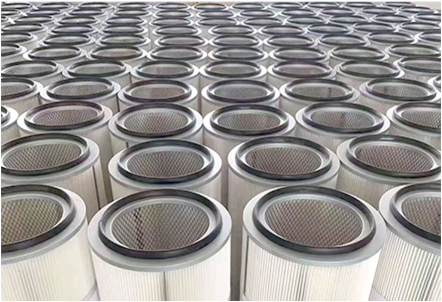 Tel:
+8618931101301
Tel:
+8618931101301
Jul . 31, 2024 20:55 Back to list
Innovative Inlet Filter Solutions for Enhanced Performance in Gas Turbine Systems and Operations
The Importance of Gas Turbine Inlet Filters
Gas turbines are widely utilized in various sectors, including power generation, aviation, and industrial processes, due to their efficiency and reliability. However, to ensure optimal performance and longevity, gas turbines require effective inlet air filtration. This is where gas turbine inlet filters come into play. These filters not only protect the turbine components from contaminants but also enhance the overall operational efficiency of the turbine.
Understanding Gas Turbine Inlet Filters
Gas turbine inlet filters are designed to remove particulate matter, dust, pollen, and other airborne contaminants from the intake air before it enters the turbine. The importance of these filters stems from the fact that the operational environment of a gas turbine can expose it to various pollutants that, if left unchecked, could lead to significant wear and tear, decreased performance, and increased maintenance costs.
Typically, gas turbine inlet filters use advanced filtration technologies, such as fiberglass or synthetic media, to achieve high levels of efficiency. By trapping fine particles as small as a few microns, these filters effectively prevent damage to critical turbine components, including compressors and blades.
The Impact of Inlet Filters on Performance
The performance of a gas turbine is directly linked to the quality of the air it draws in
. Contaminated air can result in several negative effects, including1. Reduced Efficiency Dirt and particles can accumulate on turbine components, leading to increased aerodynamic losses. A clean inlet filter ensures that the air entering the turbine is as unobstructed as possible, thereby maintaining efficient combustion and energy conversion.
gas turbine inlet filter

2. Increased Maintenance Continuous exposure to dirty air necessitates more frequent maintenance and cleaning of turbine components. This not only incurs direct costs but also leads to downtime, thereby impacting operational availability.
3. Shortened Lifespan The life expectancy of turbine components can be significantly reduced when subjected to higher levels of contamination. Gas turbine inlet filters help to extend the lifespan of the turbine by reducing the wear caused by particulate matter.
Choosing the Right Filter
Selecting an appropriate gas turbine inlet filter involves several considerations. Operators need to assess the specific environmental conditions in which the turbine will operate, including the level of particulate pollutants present in the air. Different applications may require different filtration efficiencies, and it is crucial to choose filters that can accommodate these needs.
Another key factor is the filter's pressure drop. High-pressure drops can reduce the overall efficiency of the turbine, so finding a balance between filtering capability and minimal impact on airflow is essential. Moreover, regular monitoring and maintenance of the filters ensure that they are functioning correctly and that performance is optimal.
Conclusion
Gas turbine inlet filters play a critical role in maintaining the efficiency and reliability of gas turbines across various applications. By protecting against contaminants, these filters not only help in optimizing performance but also contribute to reducing maintenance costs and extending the lifespan of turbine components. As the demand for cleaner energy and more efficient technologies continues to grow, the importance of effective inlet filtration will remain paramount in the gas turbine industry. Investing in quality gas turbine inlet filters is, therefore, an essential step for operators aiming to enhance the performance and durability of their turbine systems.
-
Working principle of high-efficiency dust filter elementNewsJun.26,2025
-
The truth about washable filters: Does repeated use really not affect efficiency?NewsJun.25,2025
-
Effect of humidity on the performance of activated carbon filter elementsNewsJun.24,2025
-
Material selection considerations for dust removal filter elements under high temperature conditionsNewsJun.23,2025
-
Cold knowledge of air filters: Why are some designed to be pleated?NewsJun.16,2025
-
Factory direct supply! High-precision air filter element wholesale and customizationNewsJun.12,2025

 Email:
Email:





